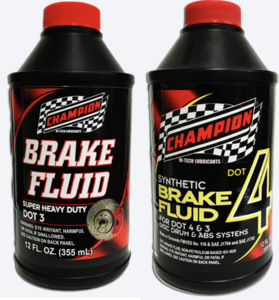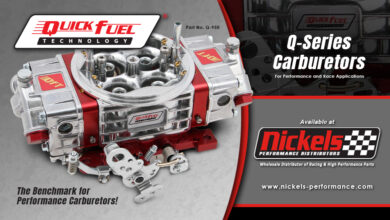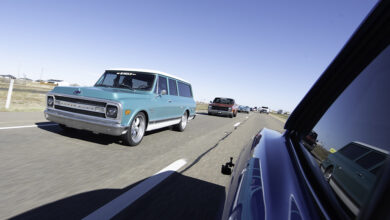Champion Oil Supports Commercial Vehicle Brake Safety Week
 Champion Oil has expressed its support for the Commercial Vehicle Safety Alliance’s annual Brake Safety Week, which begins this week.
Champion Oil has expressed its support for the Commercial Vehicle Safety Alliance’s annual Brake Safety Week, which begins this week.
The company suggests taking time to check your vehicle brake system this week: Aug. 22-28.
Law enforcement inspectors across North America will be looking for any commercial motor vehicles found to have brake-related violations that might place them out of service.
During last fall’s brake inspection blitz, more than 5,100 commercial vehicles were placed out of service because of brake-related violations. In addition, brake system and brake adjustment violations accounted for more vehicle violations than any other vehicle violation category, accounting for 38.6% of all vehicle out-of-service conditions.
Law enforcement officers checking brake systems will look for: Loose or missing parts, air or hydraulic fluid leaks, trouble-indicator lights on the dash, including antilock brakes, worn linings, pads, drums or rotors, mismatched air chamber sizes across axles, warning device functionality (such as antilock braking system indicator lights), proper brake adjustment, brake hoses and tubing condition and measuring pushrod stroke to ensure brakes are properly adjusted.
“While you are at it, it’s a good idea to either top up or flush your brake fluid system,” suggested Karl Dedolph at Champion Oil. “Brake fluid is an important component in any hydraulic braking system. The fluid is subjected to hundreds of pounds of pressure but also needs to lubricate rubber components in the master cylinder, wheel cylinders, calipers, and hoses. In addition, brake fluid has corrosion inhibitors that keep the bores of hydraulic cylinders from rusting and pitting.”
“Most of today’s brake fluids are made of polyalkylene glycol, which is hygroscopic, meaning it absorbs moisture. The absorption of water prevents “pooling” of the absorbed water in the brake system, where corrosive acids can form and make the components deteriorate,” continued Dedolph. “Water in a brake system will also cause fluids to freeze or boil faster.”



